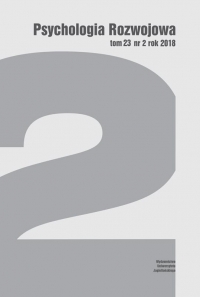Teoria ram relacyjnych (Relational Frame Theory, RFT) – współczesne, behawioralne podejście do języka i umiejętności poznawczych. Zastosowanie w terapii dzieci z zaburzeniami ze spektrum autyzmu
Relational Frame Theory (RFT): Modern Behavioral Approach to Language and Cognitive Skills. Application in Therapy of ASD Children
Author(s): Krystyna Pomorska, Paweł OstaszewskiSubject(s): Psychology
Published by: Wydawnictwo Uniwersytetu Jagiellońskiego
Keywords: Relational frame theory (RFT); behavioral therapy; autism; language skills; cognitive skills
Summary/Abstract: Responding to stimuli in accordance with the noticed and derived relations between them exerts influence on various mental skills, including the problem solving, language communication, and social functioning. In the behavioral psychology deriving relations between the stimuli (e.g. objects, events) is referred to as relational framing and is defined as the learned, generalized operant behavior. Researchers working within the Relational Frame Theory (RFT) (Hayes, Barnes-Holmes, Roche, 2001) claim that the process involved in acquiring complex language relations can be explained in terms of the arbitrary applicable relational responding (AARR). A growing body of research demonstrates the effectiveness of interventions based on the relational responding in various populations, including those with atypical development. Despite wide interest in RFT amongst international researchers and practitioners, it is still relatively unknown in Poland. The presented article aims at introducing RFT, conceived as a behavioral functional approach to language and cognitive abilities, to the Polish language speaking community, as well as presenting the possibilities of its application in therapy of autism spectrum disorder, including improving communication, skills generalization, and perspective taking.
Journal: Psychologia Rozwojowa
- Issue Year: 23/2018
- Issue No: 2
- Page Range: 21-33
- Page Count: 13
- Language: Polish

